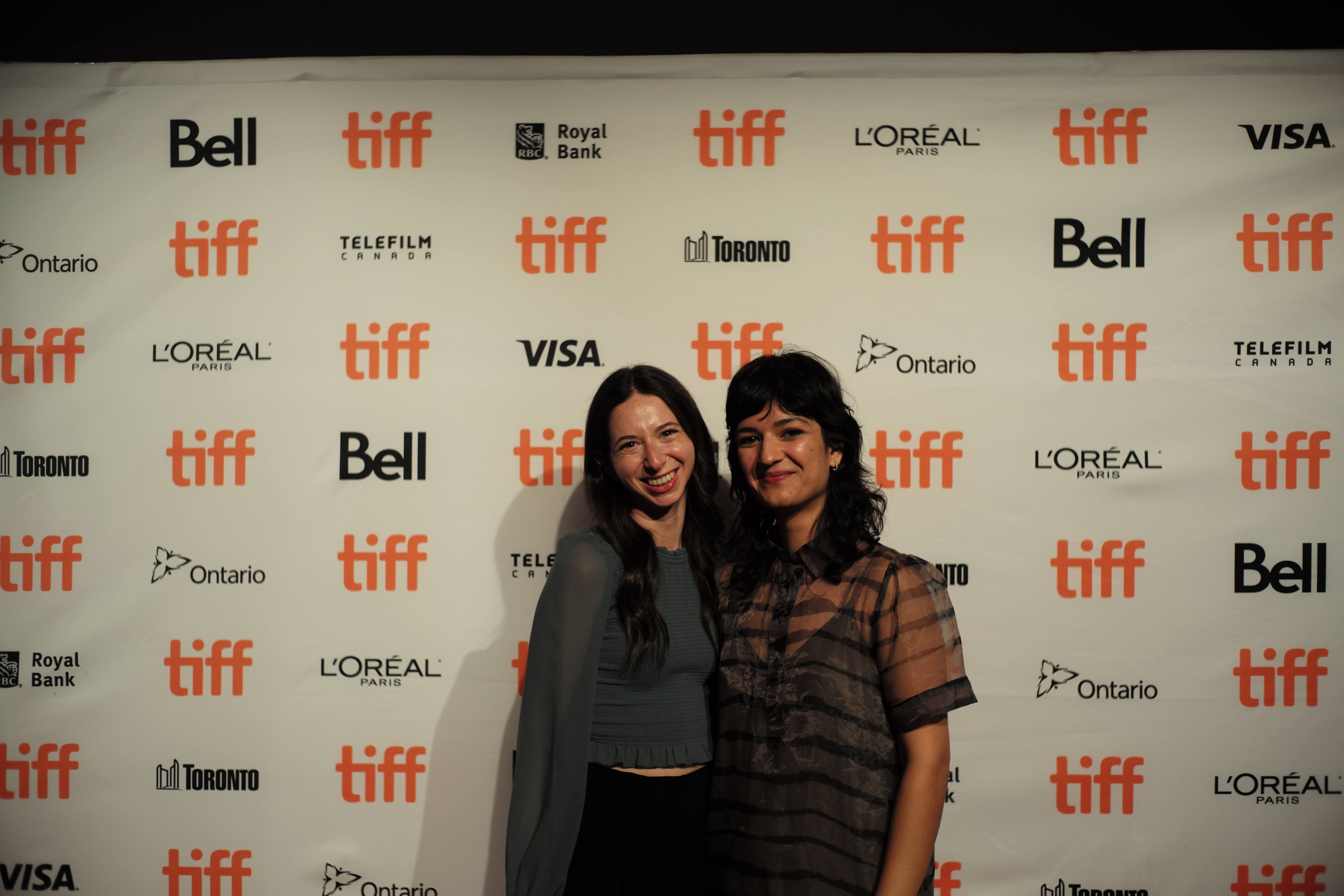How does someone end up becoming an experienced producer of movies by age 27?
Yona Strauss knows, because her work has drawn accolades at multiple festivals, as part of a rapid professional rise from shorts to features in five years.
What her work has in common so far is a focus on younger women like herself. The inspiration of Anne Hathaway in The Princess Diaries, which Strauss first saw at age 9, led her to start thinking about film as a medium in which to address themes like female identity politics and mental health.
After graduating high school from the Community Hebrew Academy of Toronto (CHAT), her passion was further nurtured by a media production degree from Toronto Metropolitan University (the school formerly known as Ryerson).
And now her credits including Quickening—a coming-of-age story about a young Pakistani immigrant to Canada. Infinity Pool, which she associate-produced for second-generation thriller director Brandon Cronenberg, will further put her name on the radar in Hollywood upon its release later this year.
We met over Zoom to talk about her career so far, and what it’s like to prepare for a new project.
***
How did you fall into producing?
When I was in high school and at university, I wasn’t focused on producing, I usually focused on directing, at the time. But, when you’re at that level, and you have an idea for a project, or you want to do something, there’s nobody there to do it for you. And those experiences of making shorts is how I made my connection at Film Forge, a production company I worked with for a little over five years. But definitely, the beginning of that exposure was through directing my own work, and then being like, well, I’ll just make it myself.
What do you enjoy most about your job?
I have the ability to see a project from a bird’s eye view. So you’re involved with every single department, you really need to be the person that people can come to get things done, seek advice and make their lives better and make the work more enjoyable. I really love the hard, hard skills of budgeting and financing. What used to really scare me has become something that’s actually very nice, and almost relaxing in a way.

So walk me through a day in your life as a producer…
Right now I’m in development on a feature film. We’re in pre-pre-production right now. So we’re going to start official prep in early fall, and we’re going to shoot in early winter. I’m doing everything right now to try to make that period as smooth as possible, we can just start the ball rolling and get into it. And what that looks like is location scouting—getting a really good understanding of what our options are within the city for what we’re looking for: what are the prices, what’s their availability and making them aware of us so they hold space.
I’m interviewing potential department heads, so that they can meet with the director and have a sense of what she’s looking for and what resources they’ll have to work with on the project. That’s the key thing right now. And then also, you know, fundraising business affairs tasks. Making sure that your company is set up properly, and that you have the funds that you need.
Right now, it’s really about getting all the pieces in place so that when the train leaves the station, we’re totally ready. People have what they need to do their job, so people aren’t stressed about the nitty-gritty details—because I’ve already taken care of them.
Did your upbringing in the Jewish school system influence your path?
The expectations at CHAT encourage a really defined career path—but the school is also really rigorous. So, these were qualities I could also apply to creative pursuits. I’ve modeled my work ethic in film on what I saw, or what might have been expected of me in that school system.
Putting those qualities into my own path is what really helped me do well, because I focused on it as if I was in med school. And it paid off. I mean this in the most positive way: there’s very much an emphasis on success. Like, if you’re going to do the things you want to do, you should do it to the best of your abilities. I think that’s so valuable.
How do you decide which stories you want to produce? Is that more to do with the team, the concept, the script itself or combination of all of those aspects?
In my career, up until this point, I’ve worked entirely with writer-directors. So if I’m working with a director on a project, they’ve also always written the script. That’s no coincidence. If you’ve written it, and you’re willing to take it to the end of the process, you have to be super-dedicated and passionate. And I really gravitate towards those types of filmmakers who have a really clear vision, and don’t shy away from telling stories that are really either difficult or controversial.
But I also need to connect with the filmmaker and trust that the story is in good hands. And, when I feel like it is, then I’ll do everything in my power to support them and make that happen.
***
Dead Lover, the sophomore feature from Canadian writer-director Grace Glowicki, will begin shooting this fall as the second full feature production credit for Yona Strauss.
Right now, you should check out the trailer for Quickening, which can be rented for viewing via TIFF:
Ilana Zackon can be reached at ilanawritesthings[@]gmail.com and found on Facebook and Instagram.
HEAR what else she has to say every week on Bonjour Chai
